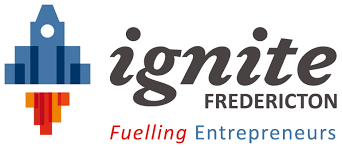Employers in the Fredericton region expect the workforce to grow in the next five years, and therefore want the government to focus on attracting skilled workers and tailoring the education system to future job demands.
Those are the findings of a new survey conducted by Ignite Fredericton in collaboration with Opportunities NB. The survey was part of the business retention and expansion, or BRE, project, which aims to proactively identify issues, challenges and opportunities related to business growth and expansion in the Fredericton region.
“This business intelligence will enable both Ignite Fredericton and Opportunities NB to be more nimble and adaptive with our programming and services based on the needs of the business community,” said Ignite Fredericton CEO Larry Shaw in a statement. “It will also provide us with some clear indicators and benchmark data year-over-year so that we can measure our progress.”
Said Stephen Lund, CEO of Opportunities NB: “ONB’s role is to support and encourage expansion within our business base that will inevitably lead to job growth. The BRE initiative provided a great framework to gain an inside view of the challenges facing local businesses, while providing a venue to help them craft solutions for sustainable growth.”
The survey results showed most companies in the region are in the startup and growth phases as one-third of online respondents reported sales of less than $250,000. Twenty-three percent have revenues of $250,000 to $1 million and 26 percent reported sales of $1 million to $5 million.
Only one-third of respondents had an export development plan, with companies experiencing various issues such as a lack of knowledge about export markets and regulations, said the statement. These results reinforce the need for Ignite’s new accelerator program, Export Igniter, and programming will be adapted based on industries’ needs, it added.
The survey also confirmed efforts to enhance the region’s ability to attract talent, and ensure educational programs are geared towards current and future industry demand. “Only 25 percent of survey respondents reported being aware of resources to support hiring newcomers and foreign workers,” said Shaw. “This indicates that we need to focus more on this area going forward.”
The following are the complete 2016 BRE results:
The survey encompassed two phases: quantitative online survey of 118 companies (18% response rate of the 669 sample size); and qualitative in-depth/in-person interviews with 49 companies with the following highlights:
General:
•Broad industry representation with 23% in manufacturing, 19% information technology, 14% business/professional services, 9% engineering, and the remaining distributed among other industries.
•Online - 69% were incorporated companies and 14% sole proprietorships.
•Online - 65% of companies reported 10 employees or less.
•Online – 67% anticipated employee growth over next five years.
•In-person - 45% of businesses reported to be in growth stage, 35% startup phase, 18% mature, 2% in decline/succession planning.
HR issues - attracting employees:
•One-third of all businesses consulted reported difficulty in attracting new employees due to lack of required skills (73%), lack of experience (52%) and better opportunities elsewhere (27%). In-depth interviews also cited competitive wages and workforce availability with one-third of businesses hiring foreign workers.
•One quarter of businesses were aware of community resources to support hiring newcomers and foreign workers (supports efforts of establishing Local Immigration Partnership of Fredericton).
Business growth, sales & trends:
•One-third of online respondents (31%) reported sales less than $250,000; 23% reported $250,000-$1 M; and 26% reported $1-5 M. Of these companies, 54% reported increasing revenues over the past five years.
•79 companies were exporting with top markets U.S. 80%, Europe 42%, Mexico 14% other 34%. 58% of these companies reported increasing export sales and 25% remained steady.
•One-third of all businesses reported having an export plan with top export barriers being: lack of knowledge about export markets (25%) and regulations (22%), financial issues (25%), market uncertainty (19%), border issues (17%) and lack of experience (17%).
•Only 14% of online respondents had benefitted from research related tax credits in the last five years.
NB/Fredericton business climate was rated online:
•Top marks (percentage of respondents rating 8 or higher on a 10 point scale, where 1=poor and 10=excellent) went to quality of life (68%), digital infrastructure (60%), educational opportunities (50%), and recreational/cultural amenities (47%).
•Lower rankings were attributed to municipal taxes (6%), U.S. air access for business (7%), provincial/federal taxes (each at 10%).










